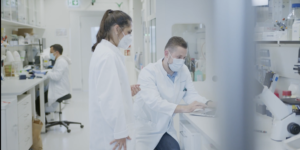 09.09.2021: Imagevideo of the SFB1292 goes online
09.09.2021: Imagevideo of the SFB1292 goes online
What are the goals of the SFB1292? What drives scientists to find answers to the SFB's questions? What have we achieved so far? Our image video provides some answers to these questions and gives a short insight into the daily work of our members. But take a look for yourself:
https://sfb1292.uni-mainz.de/imagevideo-des-sfb-1292/
08.06.2021: Özlem Türeci and Uğur Şahin appointed members of the prestigious European Molecular Biology Organization
Mainz-based research couple Uğur Şahin and Özlem Türeci have been accepted into the European Molecular Biology Organization (EMBO). The organization is dedicated to promoting cutting-edge medicine. Şahin and Türeci have been scientifically affiliated with Mainz University Medical Center for about two decades as professor and private lecturer. This year's award of the Order of Merit of the Federal Republic of Germany is now followed by further recognition of their work.
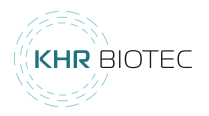 17.05.2021: KHR Biotech, a spin-off company of the University Medical Center Mainz, starts operations
17.05.2021: KHR Biotech, a spin-off company of the University Medical Center Mainz, starts operations
Biopharma company targets development of novel therapeutics for various cancers and enters into joint venture with Indivumed GmbH
Photo: Universitätsmedizin Mainz / Peter Pulkowski
Mainz University Medical Center is pleased to announce another spin-off from its ranks: the new biopharmaceutical company KHR Biotech GmbH. The spin-off pursues the goal of developing innovative therapeutic tools in the fight against cancer. The basis for the cooperation is the research success on the oncogene Ras, which was patented by the head of the Cell Biology Unit (CBU) of the University Medical Center Mainz, Univ.-Prof. Dr. Krishnaraj Rajalingam. Activating mutations in RAS are frequently identified in numerous human cancers. The partner in this joint venture project is the company Indivumed GmbH, which maintains one of the world's largest tumor tissue and tumor databases, and with which the University Medical Center Mainz has already been working successfully for many years. The new company will combine Professor Rajalingam's research and scientific approach with Indivumed's database and AI capabilities to rapidly advance novel cancer drugs targeting the Ras signaling pathway into the clinical phase.
22.04.2021: Congratulations to SFB 1292 member Prof. Dr. Florian Greten on the ERC Advanced Grant!
Prof. Dr. Florian R. Greten, project leader of the CRC 1292 and director of the Georg-Speyer-Haus (GSH), Institute of Tumor Biology and Experimental Therapy, and speaker of the LOEWE center Frankfurt Cancer Institute (FCI), has been awarded one of the highest endowed research project grants that can be obtained through the European Research Council (ERC) - the ERC Advanced Grant. Prof. Greten's scientific focus is on research into the development of colorectal cancer and the development of new therapeutic approaches. His project, funded with a total of 2.5 million euros, is entitled "Cell Plasticity in Metastatic Colorectal Cancer - PLASTICAN“.
Link to subproject: TP16
More information: https://georg-speyer-haus.de/erc-advanced-grant-21-goes-to-director-greten/
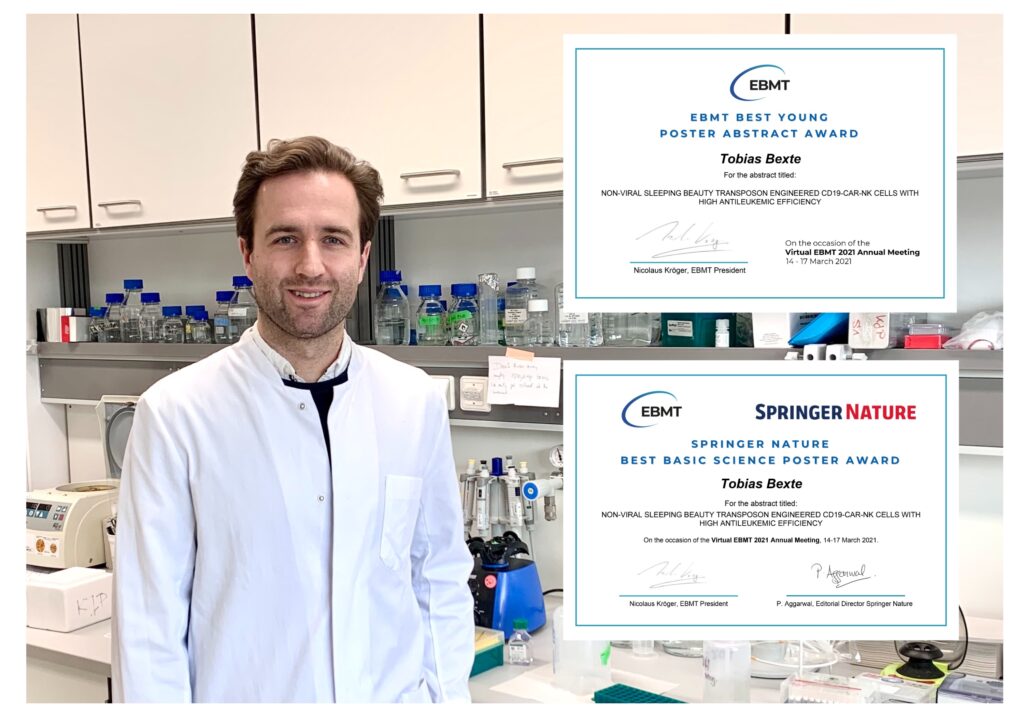
17.03.2021: Two Awards for MD Student Tobias Bexte at EBMT Congress
At this year's 47th Congress of the European Society for Blood and Marrow Transplantation (EBMT), the work of Tobias Bexte (TP12 - AG Ullrich) was awarded with two prizes - the "Springer Nature Poster Award" (Best Basic Science Poster Award) and a "Best Young Abstract Award".
The awarded research project on Sleeping Beauty CAR-NK cells presents an innovative virus-free method for gene modification of natural killer cells (NK cells). NK cells are part of the body's innate immune defense against foreign and infected cells. In the project of Tobias Bexte, medical student from Evelyn Ullrich’s team, together with the group of Prof. Zoltan Ivics from the Paul Ehrlich Institute in Langen primary NK cells were successfully equipped with a chimeric antigen receptor (CAR) using for the first time the non viral Sleeping Beauty (SB) Transposon System.
These SB-generated CD19-CAR NK cells showed increased killing of CD19-expressing acute lymphoblastic leukemia (B-ALL) cells, and exhibited significantly higher cytotoxicity than unmodified NK cells. In addition to the increased functionality, a significantly safer genomic integration into the NK cells could be achieved by this virus-free gene modification method compared to classically used lentiviral technologies. This new technology is not only suitable as a relatively cost-effective and safe option for the generation of CAR NK cell therapy of ALL, it can be also used as an promising technology for the development of cellular therapies for other types of cancer.
The former IRTG/CRC fellow Tobias Bexte is working as an MD student on new NK cell therapies in the group of Prof. Dr. Ullrich (TP12) in the "Experimental Immunology" group at the Department of Pediatrics and Adolescent Medicine of the University Hospital Frankfurt. Due to the SARS-CoV-2 pandemic, the poster awards were digitally presented at the 47th Annual EBMT Meeting on March 17, 2021.
The whole team of IRTG/CRC-1292 around spokesperson Prof. Dr. Hansjörg Schild and co-spokesperson Prof. Dr. Tobias Bopp congratulates Tobias Bexte for this major achievement.
Link to TP12
 03.12.2020: DFG acknowledges the importance of long-term research funding and the Mainz research infrastructure for BioNTech's vaccine development
03.12.2020: DFG acknowledges the importance of long-term research funding and the Mainz research infrastructure for BioNTech's vaccine development
With regard to vaccine development against the corona virus, BioNTech and its CEO and CMO Ugur Sahin and Özlem Türeci are currently the talk of the town. The research on which the development of the vaccine is based has been and continues to be funded for many years by the German Research Foundation (DFG), among others. The DFG published more detailed information in today's press release. Within the framework of the CRC 1292, in which Prof. Sahin is active as subproject leader and member of the steering committee, he is working together with his co-principal investigator Dr. Sebastian Kreiter as well as the PhD student Ikra Gizem Yildiz and the postdocs Dr. Thomas Bukur and Dr. Mathias Vormehr on questions concerning neo-epitope-specific CD4+ T cells with regard to antitumoral mechanisms and their modulation. The whole team of the SFB 1292 around speaker Prof. Dr. Hansjörg Schild congratulates Prof. Sahin, his colleagues on this groundbreaking success.
Link to press release
Picture source: University Medicine Mainz
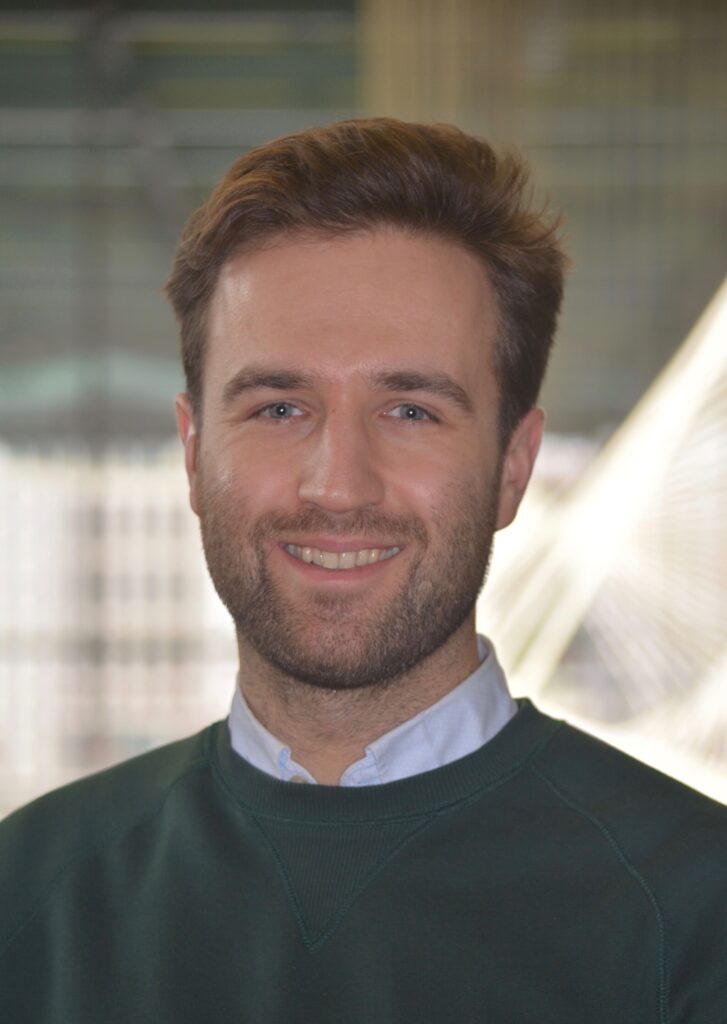
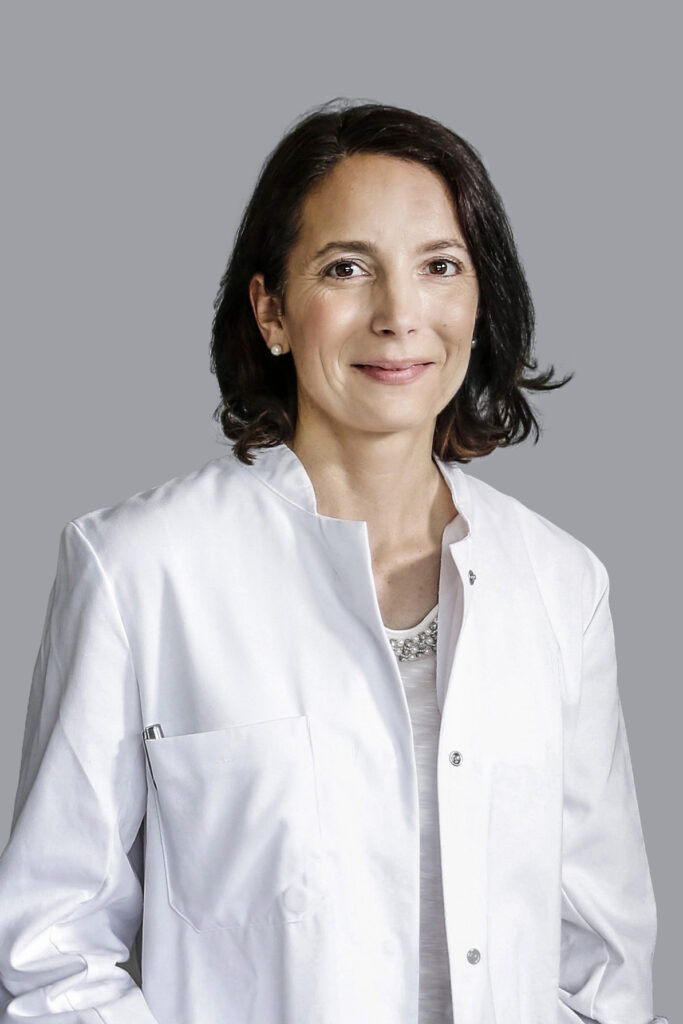 18.11.2020: Project of MD Student Tobias Bexte received GILEAD GRANT in the Field of Oncology
18.11.2020: Project of MD Student Tobias Bexte received GILEAD GRANT in the Field of Oncology
Funding award for the Ullrich research group's project (TP12) on the development of a virus-free Sleeping BeautyCAR-NK cell therapy.
At a virtual event on November 18, 2020, pharmaceutical and biotechnology company Gilead Sciences announced the awards of the 2020 Gilead Grant Program. In the field of oncology, the team of Professor Dr. med Evelyn Ullrich (TP12) from the Department of “Experimental Immunology” of the Pediatric and Adolescent Medicine of the University Hospital Frankfurt received an award and the associated funding for the project to develop an innovative Sleeping Beauty (SB)-based CAR-NK cell therapy.
Tobias Bexte, medical student and former IRTG/CRC-1292 fellow from Prof. Evelyn Ullrich’s team established a new virus-free method for gene modification of natural killer (NK) cells in cooperation with Prof. Zoltan Ivics’s group at the Paul Ehrlich Institute in Langen. NK cells are part of the body's innate immune defense against foreign and infected cells. In the award-winning project, primary NK cells could be equipped with a chimeric antigen receptor (CAR) in a virus-free manner using for the first time the SB Transposon System developed by Prof. Dr. Zoltan Ivics.
SB-generated CD19-CAR NK cells show increased killing of CD19-expressing acute lymphoblastic leukemia (B-ALL) cells, which is significantly higher than the cytotoxicity induced by unmodified NK cells. In addition to the increased functionality of SB-CAR-NK cells, this virus-free gene modification method was also shown to have a significantly safer genomic integration into NK cells than classically used lentiviral technologies of CAR-NK cell generation.
This new technology is not only suitable as a relatively cost effective and safer new cell therapy approach for the generation of CAR-NK cell therapy for ALL, but also for treatment of other types of cancers.
The Gilead grant program supports promising research projects in medicine and, since 2016, also innovative projects in the field of oncology to explore novel therapies for cancer patients. An independent panel of experts reviewed numerous applications and selected the best projects, which will receive a total of 600,000 euros in funding.
We are very pleased and congratulate Tobias Bexte, Prof. Evelyn Ullrich and Prof. Zoltan Ivics on this award!
Link to TP12
29.11.2019: Neue Chancen durch Immuntherapien bei Tumorerkrankungen
Das Immunsystem des Menschen ist in der Lage, Tumorzellen als abnormale Zellen zu erkennen und zu vernichten. Jedoch gelingt es vielen Tumorzellen, unerkannt zu bleiben und sich weiter zu teilen. Mit jährlich rund 18 Millionen Neuerkrankungen weltweit (Stand 2018) haben Krebsbehandlungen eine hohe Relevanz. Voraussetzung, um neue Therapieansätze erforschen zu können, sind neue Erkenntnisse über die Immunreaktionen gegen Krebszellen. Das Centrum für Thrombose und Hämostase der Universitätsmedizin Mainz (CTH) konnte im Mausmodell einen bislang unbekannten Einfluss der Blutgerinnung auf die Anti-Tumor-Immunreaktion des Körpers aufzeigen. Damit könnte es gelingen, einen neuartigen klinischen Ansatz in der Immuntherapie von Krebs und anderen Erkrankungen zu entwickeln. Die Ergebnisse wurden in der Septemberausgabe der renommierten Fachzeitschrift „Science Immunology“ veröffentlicht.
Bild: Der Effekt von klinisch eingesetzten Blutverdünnern auf die Anti-Tumor-Immunantwort. Bildquelle: Claudine Graf (Universitätsmedizin Mainz)
With contribution of the project: TP10
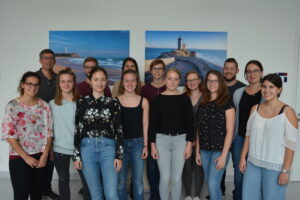 17.08.2019: Erfolgreiche Abschlussveranstaltung XIII. Mainzer SommerUni Immunologie & Biomedizin
17.08.2019: Erfolgreiche Abschlussveranstaltung XIII. Mainzer SommerUni Immunologie & Biomedizin
In fünf einwöchigen Projekten durften 15 Schüler der höheren Klassenstufen aus dem In- und Ausland Laborluft schnuppern und selbst Hand an die Pipetten legen. Hierbei trafen die hoch-motivierten Jugendlichen auf engagierte Nachwuchswissenschaftler des SFB129, des Forschungszentrums für Immuntherapie und des UCT, die eigens für die SommerUni Projekte konzipierten, vorbereiteten und betreuten. Endlich konnten die Schüler erfahren, wie die in der Schule vermittelten Grundlagen in Chemie, Biologie, Physik, Mathematik und Informatik in der modernen Forschung Anwendung finden. Zu guter Letzt durften die Schüler ihre Ergebnisse einen breiteren Publikum, bestehend aus Lehrern, Eltern, Wissenschaftlern und geladenen Gästen vorstellen.
Foto: Doreen Nothmann/FZI
Link zur Webseite: http://www.sommeruni.biomedizin.uni-mainz.de/sommeruni/start.html
With contribution of the projects: TP01, TP06, TP11, TP13, TP14, and TPZ01
29.11.2018: How skin cancer cells sidestep the immune system
Mainz-based immunologists report on a new mechanism of immune evasion in Nature Immunology
Researchers at the Mainz University Medical Center discovered a new signal pathway employed by skin cancer cells to avoid attack by the immune system. In an animal model and through analysis of human tissue samples, Dr. Toszka Bohn, Dr. Steffen Rapp and Professor Tobias Bopp were able to demonstrate the significant role played by a specific protein called ICER. Tumors grow less rapidly when ICER is not present. The researchers recently presented their study in Nature Immunology.
With contribution of the projects: TP01, TP13 and TP15
 11.09.2018: „Man lernt, wie eine ganze Gruppe zu denken“
11.09.2018: „Man lernt, wie eine ganze Gruppe zu denken“
Interview mit Prof. Dr. Rajalingam über das DFG-geförderte Emmy-Noether-Programm im Laborjournal:
https://www.laborjournal.de/editorials/1591.lasso
Mit Beteiligung von TP05
![]()
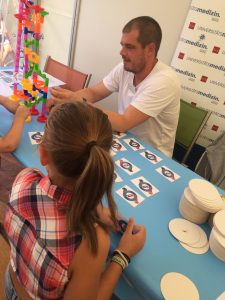 09.09.2018: SFB1292 zum ersten Mal beim Mainzer Wissenschaftsmarkt dabei
09.09.2018: SFB1292 zum ersten Mal beim Mainzer Wissenschaftsmarkt dabei
Wissenschaftlicher Nachwuchs "trainiert" zukünftige Nachwuchswissenschaftler
Doktoranden des neuen Sonderforschungsbereichs 1292 bringen auf spielerische Art und Weise den Besuchern des Mainzer Wissenschaftsmarkes 2018 die Themen ihrer Projekte näher. So können junge Interessenten in einem Memory-Spiel mehr über die Abwehrzellen unseres Körpers erfahren. Darüber hinaus werden Kreisel gebastelt, die veranschaulichen, wie schwierig es ist, dass unser Immunsystem stets im Gleichgewicht bleibt. Für die Kleinsten zeigt eine Kugelbahn, welche Abwehrzellen wann und wo auf Eindringlinge warten und sie bekämpfen. Für die Erwachsenen bieten der Stand Informationsmaterial und spannende Schaubilder über die Ziele des SFB1292.
Vielen Dank an Asmaa, Natalia, Inga, Felix und Vinzenz!
Mit Beteiligung von TP01, TP12,und TP13 sowie dem UCT
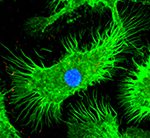 22. August 2018: Universitätsmedizin Mainz koordiniert neues, internationales Innovative Training Network
22. August 2018: Universitätsmedizin Mainz koordiniert neues, internationales Innovative Training Network
„TICARDIO“ rückt biomedizinische Prozesse bei Herz-Kreislauf-Erkrankungen in den Fokus
Aktivierte Makrophagen in der Immunfluoreszenz-Mikroskopie, die thrombo-inflammatorische Mikropartikel generieren (grün: Cytoskelett der Zelle (F-Actin), blau: Zellkern, rot: Tissue Factor). Bildquelle: The Scripps Research Institute
Das Centrum für Thrombose und Hämostase (CTH) der Universitätsmedizin Mainz ist Koordinator des neuen Innovative Training Networks (ITN) „TICARDIO – Thrombo-Inflammation in Cardiovascular Disease“. Es dient der Erforschung von pathologischen Prozessen bei Herz-Kreislauf-Erkrankungen. Das ITN bietet 15 naturwissenschaftlichen Doktoranden die Gelegenheit, wissenschaftliche und allgemeine Kompetenzen innerhalb eines grenzüberschreitenden Netzwerks auszubauen. Das strukturierte internationale, interdisziplinäre und intersektorale Forschungs- und Ausbildungsprogramm findet ab 2019 an den Standorten Mainz, Maastricht, Marseille und Dortmund statt. Die Europäische Kommission fördert das ITN im Rahmen der Marie-Skłodowska-Curie-Maßnahmen (MSCA) über 48 Monate mit vier Millionen Euro über ihr Rahmenprogramm für Forschung und Innovation "Horizont 2020".
(Foto: Aktivierte Makrophagen in der Immunfluoreszenz-Mikroskopie, die thrombo-inflammatorische Mikropartikel generieren (grün: Cytoskelett der Zelle (F-Actin), blau: Zellkern, rot: Tissue Factor). Bildquelle: The Scripps Research Institute)
With contribution of the projects: TP02, TP10
 20. August 2018: Ansatz für neue Therapieoption gegen Multiple Sklerose gefunden
20. August 2018: Ansatz für neue Therapieoption gegen Multiple Sklerose gefunden
Wissenschaftler der Universitätsmedizin Mainz entdecken neues Potential eines Impfstoffs gegen Typhus zur Behandlung der Autoimmunerkrankung MS







 17.08.2019: Erfolgreiche Abschlussveranstaltung XIII. Mainzer SommerUni Immunologie & Biomedizin
17.08.2019: Erfolgreiche Abschlussveranstaltung XIII. Mainzer SommerUni Immunologie & Biomedizin
